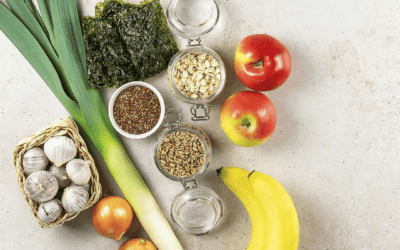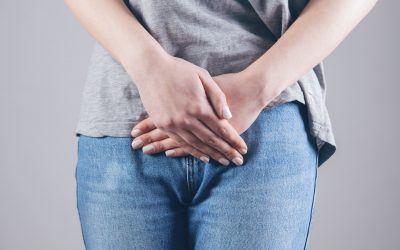Acne and gut health are linked through our immune system, and we can influence this through diet.
Acne is not just for teenagers, many people develop spots on the face, back and chest later in life. It’s thought nearly 10% of the world experience acne at some point. How does your food and lifestyle affect your skin health?
Traditional medicine treats acne through topical creams, antibiotics or hormonal agents, but these do not address the reasons why the skin is showing inflammation.
Root cause of acne
There are many interlinked causes of skin problems:
Gut bacteria and skin health
Some research has suggested addressing imbalances in the gut bacteria is the key to skin problems such as acne.
Dysbiosis can contribute to intestinal permeability (sometimes called ‘leaky gut’) which plays a part in many gut-skin interactions.
Gut microbes communicate with our skin through the immune system. Around 70% of the immunes system is in the digestive tract. Any inflammation puts the immune system on alert which may affect skin health.
- Some bacteria promote the accumulation of pro-inflammatory Th17 and Th1 cells
- Beneficial microbes use fibre to create Short Chain Fatty Acids, which help to reduce inflammation.
- Some studies have even shown gut bacteria DNA in the skin of patients with psoriasis, showing that gut microbes can translocate to the skin
Probiotic therapy has been shown to improve acne symptoms in some trials.
Does too much sugar give you spots?
When we eat a sugary meal insulin is raised to transport the glucose into the cells.
When our insulin response isn’t optimal, often the result of a high sugar diet, insulin like growth factor (IGF-1) can become elevated.
IGF-1 can increase sebum production in the skin and increase inflammation, which leads to spots. Excess oil in the skin clogs up the pores and can cause acne. Patients with acne have been shown to have reduced insulin sensitivity.
Hormonal acne – what to eat
Testosterone and DHEA (a natural steroid in the body) stimulates the over production of skin cells and increases sebum (oil) levels in the skin. Women can have higher levels of testosterone in conditions such as Polycystic Ovary Syndrome. Insulin can drive higher levels of testosterone, which may contribute to acne.
Balancing out blood sugar may help to manage your higher levels of androgen hormones. Eat more protein, sufficient fibre and lots of vegetables and fruits.
How can food help improve your acne?
- A diet rich in antioxidants, (especially vitamin C and E) may help reduce oxidative stress throughout the body and in the skin. Eat tomatoes, red pepper, green leafy vegetables, oranges, kiwi, strawberries for vitamin C, and nuts and seeds for vitamin E.
- A low glycaemic diet has been shown to improve acne lesions, reduce weight, and also decrease inflammation in the skin. This means avoiding high sugar foods and simple carbohydrates such as cakes and biscuits, and including complex carbohydrates like brown rice and rye bread instead of simple carbs like white bread alternatives.
- Milk is known to increase insulin levels and has been linked to acnes in several studies. Whey protein has also been linked to the development of acne in several cases, so anyone wanting to add protein to their diet to support building muscle could try to avoid whey based shakes and snacks. Remove the dairy for a short while (say 4 weeks) if acne is a problem to test if this makes a difference, but don’t remove dairy unnecessarily.
- Cocoa has also been linked to an increase in acne lesions in patients with pre-existing conditions. So you may need to stay away from the chocolate too if spots occur.
- High fibre diets may help improve skin health. Focus on adding plant proteins to your diet such as beans and nuts. Ensure you’re getting at least your 5 a day in terms of vegetables and fruit.
Exercising can improve insulin sensitivity which may also support improvement in acne symptoms.
Improving your gut health to address acne
If we can address the cause of any irritation in the gut, as well as improve your diet you may see some improvements in your skin health.
- Address the issues in your digestion so you have regular bowel movements, and any ongoing bloating, diarrhoea or infections are resolved.
- Ensure you’re eating adequate fibre (aim for 30 grams a day)
- Eat a varied diet – aiming for 30 different plant foods each week (includes wholegrains, fruits, vegetables, pulses, nuts, seeds and spices)
- Aim to eat different coloured fruits and vegetables – the bright colour in plants are antioxidants that support a reduction in inflammation, eat a rainbow of colours every day.
Acne and gut health are linked via the skin-gut axis, which once understood, can help us modulate the immune system to drive improvements.

IBS Nutritionist
Hi, I'm Anna Mapson, registered Nutritional Therapist.
I help people with IBS and SIBO get control of unpredictable gut symptoms to find long term relief from painful and embarrassing IBS without restrictive dieting.
I can help you to:
- understand your digestion better, so you recognise your triggers
- eat a well balanced diet, with tasty meals that are simple to prepare
- reintroduce your trigger foods so you can get back to enjoying food again
Find more about my 3 month 1:1 Gut Reset programme.
Red flags for bowel movements, and what’s a perfect poo
You might not often discuss your bowel habits with your nearest and dearest, but sometimes it's worth getting a second opinion. In this blog post I'm talking about a list of red flags for bowel movements you should speak to your doctor about. I'll also cover how to...
Are prebiotics good for IBS?
If you've tried taking prebiotics for your IBS you might have noticed they can really make a big impact. And not always in a good way! Prebiotics are a type of short chain sugars found in plant foods, and they also help to feed our healthy gut bacteria. Many people...
Why does my stomach rumble? Causes of noisy digestion
Ever interrupted a meeting with a loud stomach rumble? Or heard sounds in there like a blocked drain is being cleared? Whilst it can be embarrassing, stomach noises aren't normally anything to worry about, it's often just food and liquid moving through your digestion....




